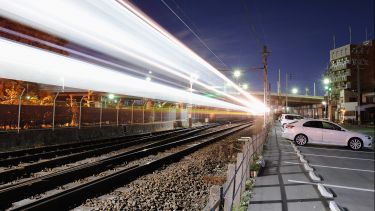Imagine a future where your electric car parked at your local railway station actually powers the trains. This is the vision of some of the researchers working in the Energy Institute at The University of Sheffield.
The first of its kind Roal to Rail project is a new approach to making our railways greener by linking up the batteries in electrical cars to the rail system.
The way we currently power our electric trains is wasteful. Trains require a large energy boost at busy times which is powered by the UK grid but, at other times, trains generate a surplus of energy which is then lost.
To stop this energy waste and reduce demand on the UK grid, our researchers are devising a circular system where the batteries in electric cars parked in the station car park provide the extra energy needed to power the trains at busy times and the car batteries are then replenished when a surplus is generated.
As well as reducing the drain on the grid, this system offers the potential to extend the electrification of the railway network to remote areas and reduce the need for diesel trains.
To test the technology Professors Dan Gladwin, Martin Foster and Dave Stone from the Energy Institute and the Department of Electronic and Electrical Engineering are developing a purpose-built energy storage test facility that will sit alongside a railway line.
Two types of energy storage, batteries and supercapacitors, are being trialled as hybrid solutions, and the research will also examine the technical issues surrounding the use of connected electric cars, new stationary batteries and second life electric vehicle batteries as storage options.
The research addresses both the technology to store electric energy in a form suited to transport use, and the modelling to understand how to use the technology to optimise the energy usage across the system.
As well as the technology to run the scheme, the researchers are investigating how it could work for the benefit of consumers. The system needs to have measures to make sure electric car batteries are never drained, and that the consumer is not out of pocket by charging their car at home, then plugging into the rail network.

